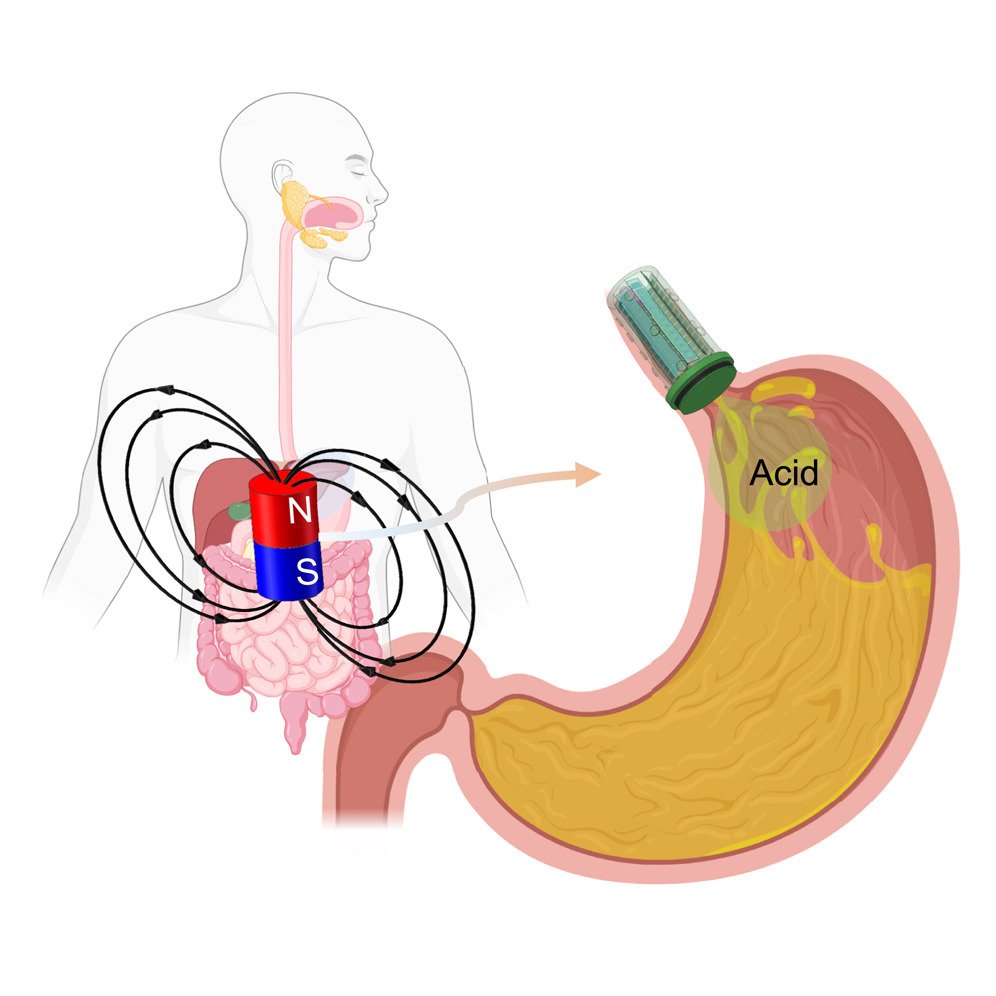Researchers at Vanderbilt University have developed a magnetic soft robotic valve designed to restore function in organs affected by muscular dysfunction, including the esophagus, intestines, and urinary tract. This innovation offers a minimally invasive alternative to traditional surgical implants and could transform treatment for conditions such as gastroesophageal reflux disease (GERD), which affects millions of people worldwide.
The research team created a valve that mimics the natural contractions of smooth muscle, allowing it to regulate flow in tubular organs without relying on rigid materials or electrical stimulation. The device is constructed from soft polymers and uses magnetic actuation to produce rhythmic contractions that replicate peristalsis, the wave-like motion that moves food and fluids through the digestive system.
Unlike conventional implants, which often require invasive procedures and external power sources, the Vanderbilt valve operates through a wireless magnetic control system. This system enables clinicians to adjust the valve’s behavior remotely, offering precise control without the need for batteries or complex electronics. The valve’s design also allows it to seal effectively while permitting the passage of solids, overcoming limitations seen in existing anti-reflux devices.
In preclinical studies, the valve successfully restored function in damaged esophageal tissue and maintained consistent pressure to prevent acid reflux. The researchers also demonstrated its ability to regulate flow in other organ systems, suggesting broader applications for conditions such as urinary incontinence and intestinal motility disorders.
Article from Vanderbilt University: Vanderbilt researcher leads development of novel robotic valve to address acid reflux, other organ system disorders
Abstract in Device: Magnetic soft robotic valve for minimally invasive therapy of gastroesophageal reflux disease

